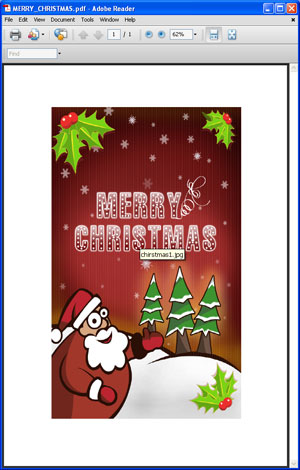TROJ_PIDIEF.EGR
Windows 2000, Windows XP, Windows Server 2003


Threat Type: Trojan
Destructiveness: No
Encrypted:
In the wild: Yes
OVERVIEW
It drops and opens a non-malicious .PDF file to trick the user that the file is non- malicious.
Upon execution, it checks the version of the Adobe Acrobat on the system. If the version is 9.4 or below, it attempts to exploit specific vulnerabilities to drop and execute files.
This Trojan executes the dropped file(s). As a result, malicious routines of the dropped files are exhibited on the affected system.
TECHNICAL DETAILS
Installation
This Trojan drops the following component file(s):
- %User Profile%\Local Settings\fabc.scr
- %User Profile%\Local Settings\log1.txt
- %User Profile%\Local Settings\abc.scr - BKDR_FYNLOS.A
(Note: %User Profile% is the current user's profile folder, which is usually C:\Windows\Profiles\{user name} on Windows 98 and ME, C:\WINNT\Profiles\{user name} on Windows NT, and C:\Documents and Settings\{user name} on Windows 2000, XP, and Server 2003.)
It drops the following non-malicious file:
- %User Profile%\Local Settings\MERRY_CHRISTMAS.pdf
(Note: %User Profile% is the current user's profile folder, which is usually C:\Windows\Profiles\{user name} on Windows 98 and ME, C:\WINNT\Profiles\{user name} on Windows NT, and C:\Documents and Settings\{user name} on Windows 2000, XP, and Server 2003.)
Dropping Routine
This Trojan executes the dropped file(s). As a result, malicious routines of the dropped files are exhibited on the affected system.
NOTES:
It drops and opens a non-malicious .PDF file to trick the user that the file is non-malicious:

Upon execution, it checks the version of the Adobe Acrobat on the system. If the version is 9.4 or below, it attempts to exploit the following vulnerabilities to drop and execute files:
It joins the files LOG1.TXT and FABC.SCR to form the file ABC.SCR, which it executes afterwards.
SOLUTION
Step 1
For Windows XP and Windows Server 2003 users, before doing any scans, please make sure you disable System Restore to allow full scanning of your computer.
Step 3
Search and delete these files
Step 4
Scan your computer with your Trend Micro product to delete files detected as TROJ_PIDIEF.EGR. If the detected files have already been cleaned, deleted, or quarantined by your Trend Micro product, no further step is required. You may opt to simply delete the quarantined files. Please check this Knowledge Base page for more information.
Step 5
Download and apply these security patches Refrain from using these products until the appropriate patches have been installed. Trend Micro advises users to download critical patches upon release by vendors.
Did this description help? Tell us how we did.


